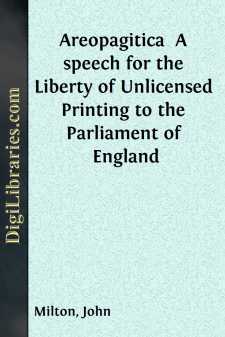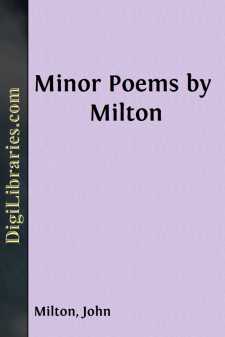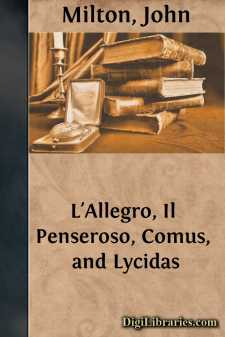Categories
- Antiques & Collectibles 13
- Architecture 36
- Art 48
- Bibles 22
- Biography & Autobiography 813
- Body, Mind & Spirit 142
- Business & Economics 28
- Children's Books 15
- Children's Fiction 12
- Computers 4
- Cooking 94
- Crafts & Hobbies 4
- Drama 346
- Education 46
- Family & Relationships 57
- Fiction 11829
- Games 19
- Gardening 17
- Health & Fitness 34
- History 1377
- House & Home 1
- Humor 147
- Juvenile Fiction 1873
- Juvenile Nonfiction 202
- Language Arts & Disciplines 88
- Law 16
- Literary Collections 686
- Literary Criticism 179
- Mathematics 13
- Medical 41
- Music 40
- Nature 179
- Non-Classifiable 1768
- Performing Arts 7
- Periodicals 1453
- Philosophy 64
- Photography 2
- Poetry 896
- Political Science 203
- Psychology 42
- Reference 154
- Religion 513
- Science 126
- Self-Help 84
- Social Science 81
- Sports & Recreation 34
- Study Aids 3
- Technology & Engineering 59
- Transportation 23
- Travel 463
- True Crime 29
Areopagitica A speech for the Liberty of Unlicensed Printing to the Parliament of England
by: John Milton
Categories:
Description:
Excerpt
They, who to states and governors of the Commonwealth direct their speech, High Court of Parliament, or, wanting such access in a private condition, write that which they foresee may advance the public good; I suppose them, as at the beginning of no mean endeavour, not a little altered and moved inwardly in their minds: some with doubt of what will be the success, others with fear of what will be the censure; some with hope, others with confidence of what they have to speak. And me perhaps each of these dispositions, as the subject was whereon I entered, may have at other times variously affected; and likely might in these foremost expressions now also disclose which of them swayed most, but that the very attempt of this address thus made, and the thought of whom it hath recourse to, hath got the power within me to a passion, far more welcome than incidental to a preface.
Which though I stay not to confess ere any ask, I shall be blameless, if it be no other than the joy and gratulation which it brings to all who wish and promote their country's liberty; whereof this whole discourse proposed will be a certain testimony, if not a trophy. For this is not the liberty which we can hope, that no grievance ever should arise in the Commonwealth—that let no man in this world expect; but when complaints are freely heard, deeply considered and speedily reformed, then is the utmost bound of civil liberty attained that wise men look for. To which if I now manifest by the very sound of this which I shall utter, that we are already in good part arrived, and yet from such a steep disadvantage of tyranny and superstition grounded into our principles as was beyond the manhood of a Roman recovery, it will be attributed first, as is most due, to the strong assistance of God our deliverer, next to your faithful guidance and undaunted wisdom, Lords and Commons of England. Neither is it in God's esteem the diminution of his glory, when honourable things are spoken of good men and worthy magistrates; which if I now first should begin to do, after so fair a progress of your laudable deeds, and such a long obligement upon the whole realm to your indefatigable virtues, I might be justly reckoned among the tardiest, and the unwillingest of them that praise ye.
Nevertheless there being three principal things, without which all praising is but courtship and flattery: First, when that only is praised which is solidly worth praise: next, when greatest likelihoods are brought that such things are truly and really in those persons to whom they are ascribed: the other, when he who praises, by showing that such his actual persuasion is of whom he writes, can demonstrate that he flatters not; the former two of these I have heretofore endeavoured, rescuing the employment from him who went about to impair your merits with a trivial and malignant encomium; the latter as belonging chiefly to mine own acquittal, that whom I so extolled I did not flatter, hath been reserved opportunely to this occasion.
For he who freely magnifies what hath been nobly done, and fears not to declare as freely what might be done better, gives ye the best covenant of his fidelity; and that his loyalest affection and his hope waits on your proceedings. His highest praising is not flattery, and his plainest advice is a kind of praising. For though I should affirm and hold by argument, that it would fare better with truth, with learning and the Commonwealth, if one of your published Orders, which I should name, were called in; yet at the same time it could not but much redound to the lustre of your mild and equal government, whenas private persons are hereby animated to think ye better pleased with public advice, than other statists have been delighted heretofore with public flattery. And men will then see what difference there is between the magnanimity of a triennial Parliament, and that jealous haughtiness of prelates and cabin counsellors that usurped of late, whenas they shall observe ye in the midst of your victories and successes more gently brooking written exceptions against a voted Order than other courts, which had produced nothing worth memory but the weak ostentation of wealth, would have endured the least signified dislike at any sudden proclamation....





